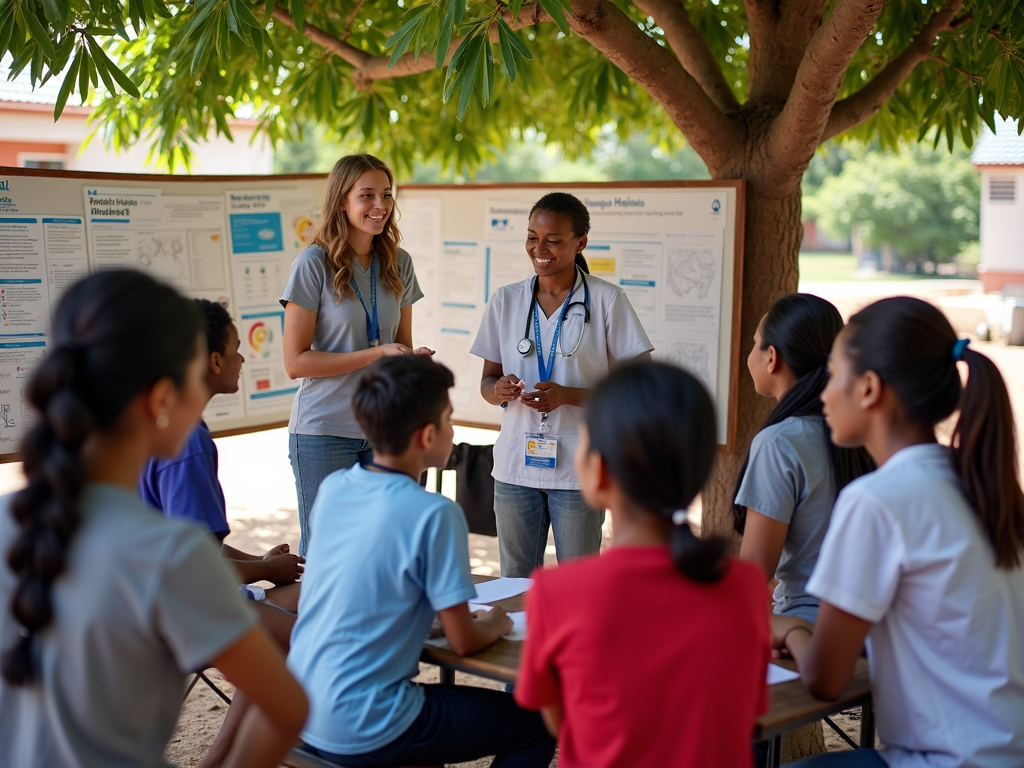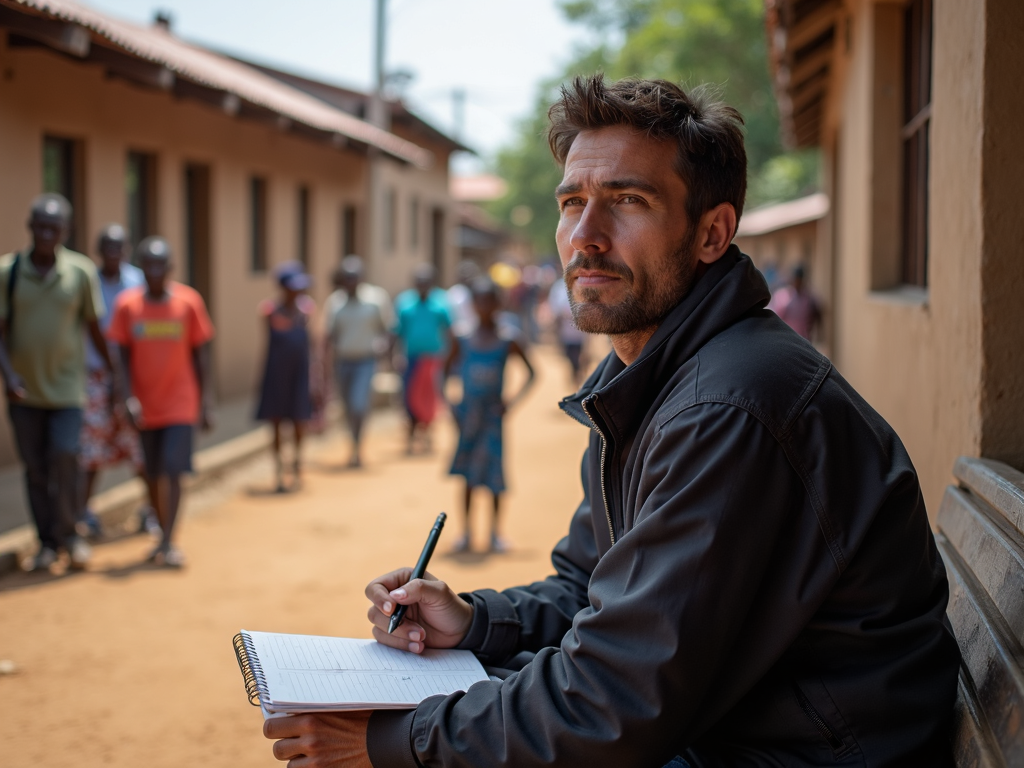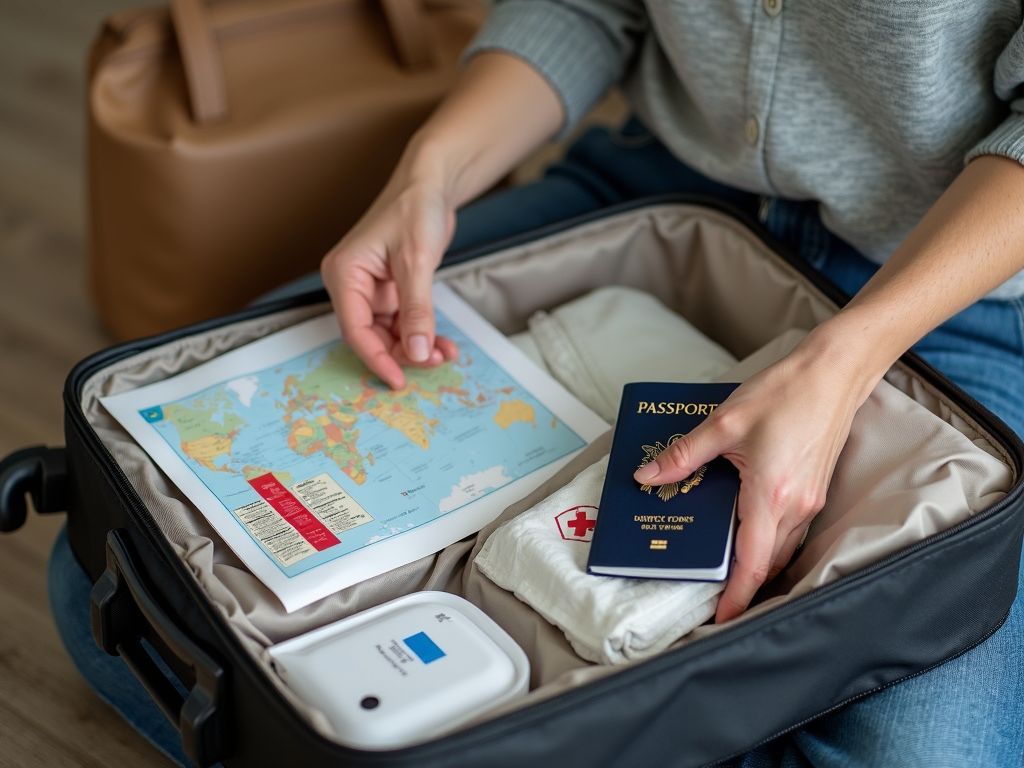International Volunteering for Healthcare Professionals: A Guide to Making a Difference
By , June 11, 2025
International volunteering for healthcare professionals is a unique opportunity to make a global impact while gaining invaluable personal and professional experiences. Whether you're a doctor, nurse, or allied health worker, volunteering abroad can be a life-changing adventure. This guide will walk you through everything you need to know about international volunteering, from the benefits and challenges to how to get started and make a real difference in communities around the world.
What is International Volunteering for Healthcare Professionals?
International volunteering involves healthcare professionals offering their skills and expertise in underserved communities across the globe. This can range from providing direct medical care to training local staff, implementing health programs, or supporting public health initiatives. Volunteers work in diverse settings, from rural clinics in Africa to urban hospitals in Asia, each offering unique challenges and rewards.

Benefits of Volunteering
Volunteering abroad offers numerous benefits that extend beyond the immediate impact on communities:
-
Personal Growth: Immersing yourself in a new culture and environment fosters adaptability, resilience, and a broader worldview. You'll develop a deeper understanding of global health issues and the social determinants of health.
-
Professional Development: Working in resource-limited settings hones your clinical skills, problem-solving abilities, and cultural competence. You'll gain experience in managing conditions rarely seen in your home country and learn to work with limited resources.
-
Cultural Exchange: Building relationships with local healthcare workers and community members enriches your understanding of different healthcare systems and practices. This exchange of knowledge and ideas can lead to lasting professional networks and friendships.
-
Making a Difference: Perhaps the most rewarding aspect is the tangible impact you can have on individuals and communities. From treating patients to training local staff, your contributions can improve health outcomes and strengthen healthcare systems.

Challenges and Considerations
While international volunteering is rewarding, it's not without its challenges. Being prepared for these can help you navigate them effectively:
-
Cultural Barriers: Language differences and unfamiliar customs can make communication and integration challenging. Learning basic phrases and being open to cultural norms can ease this transition.
-
Resource Limitations: Many volunteering sites lack basic medical supplies and equipment. You'll need to be creative and adaptable, often relying on clinical skills rather than advanced technology.
-
Ethical Considerations: It's crucial to ensure that your work respects local practices and doesn't undermine existing healthcare systems. Volunteers should aim to empower local staff rather than replace them.
-
Emotional Toll: Witnessing poverty, disease, and limited access to care can be emotionally taxing. Self-care and debriefing with fellow volunteers or mentors are essential.
Understanding these challenges is key to a successful volunteering experience. For more insights, check out this guide on ethical volunteering from the U.S. Department of Health and Human Services.

How to Get Started
Embarking on an international volunteering journey requires careful planning and preparation. Here's a step-by-step guide to help you get started:
-
Research: Identify your goals, skills, and the type of volunteering experience you seek. Consider factors like location, duration, and the specific healthcare needs of the community.
-
Choose the Right Program: Look for reputable organizations that align with your values and offer structured support. Check for reviews, ask for references, and ensure they have a clear mission and ethical guidelines.
-
Prepare: Brush up on relevant medical knowledge, learn about the local culture and healthcare system, and ensure you have the necessary visas and vaccinations.
-
Fundraising: Many volunteers need to cover their own expenses. Explore fundraising options, grants, or sponsorships to support your journey.
-
Stay Flexible: Be prepared for unexpected changes and challenges. Flexibility and a positive attitude are crucial for a successful experience.
For a comprehensive list of volunteer organizations, visit the International Volunteer Programs Association.

Personal Stories: Voices from the Field
Hearing from those who have volunteered can provide valuable insights and inspiration. Here are a few stories from healthcare professionals who have made a difference abroad:
-
Dr. Sarah Thompson, Pediatrician: "Volunteering in rural Kenya taught me more about resilience and resourcefulness than any textbook could. I learned to diagnose without fancy tests and built lifelong friendships with local doctors."
-
Nurse Maria Gonzalez: "In Guatemala, I trained community health workers on maternal health. Seeing them empower women in their villages was incredibly rewarding. It reminded me why I became a nurse."
-
Physiotherapist Alex Chen: "Working in a rehabilitation center in Vietnam, I adapted exercises using local materials. The gratitude from patients and their families was humbling and reinforced the universal language of care."
These stories highlight the profound impact volunteering can have on both volunteers and the communities they serve.

Impact on Communities
International volunteering can lead to significant positive changes in host communities, especially when done thoughtfully:
-
Improved Health Outcomes: Volunteers often fill critical gaps in healthcare delivery, providing services that might otherwise be unavailable.
-
Capacity Building: Training local healthcare workers ensures sustainable improvements long after volunteers leave.
-
Cultural Exchange: Sharing knowledge and practices can lead to innovative solutions and stronger healthcare systems.
-
Economic Benefits: Some programs contribute to local economies through volunteer spending and project funding.
However, it's essential to ensure that volunteering efforts are sustainable and aligned with community needs. The World Health Organization's guidelines on global health initiatives provide valuable insights into maximizing positive impact.

Summary
International volunteering for healthcare professionals is a powerful way to make a global impact while growing personally and professionally. By understanding the benefits, challenges, and how to prepare, you can embark on a journey that not only transforms lives but also enriches your own. Remember to choose ethical programs, stay adaptable, and focus on sustainable contributions. Whether you're just starting to explore options or ready to pack your bags, the world needs your skills and compassion.